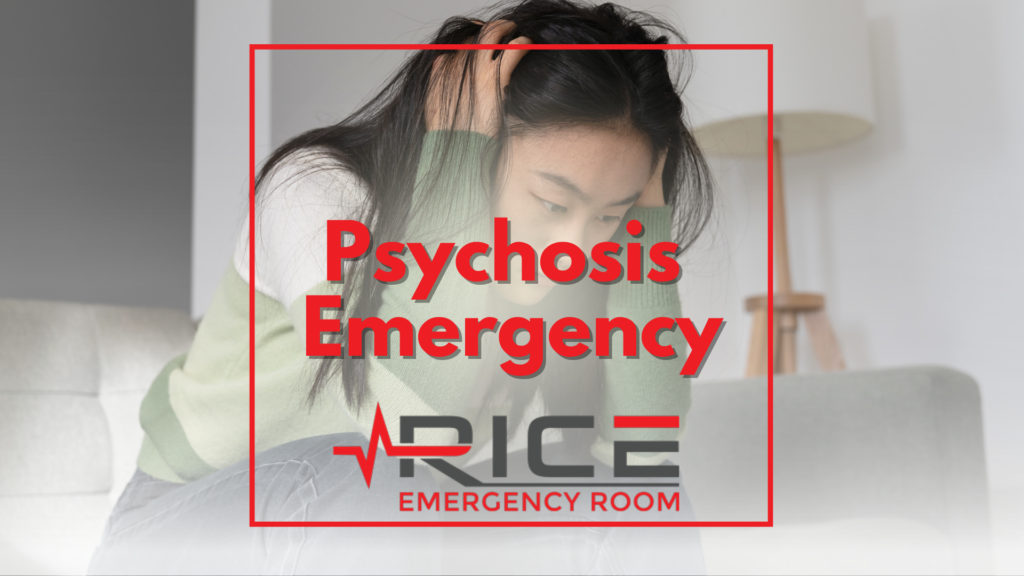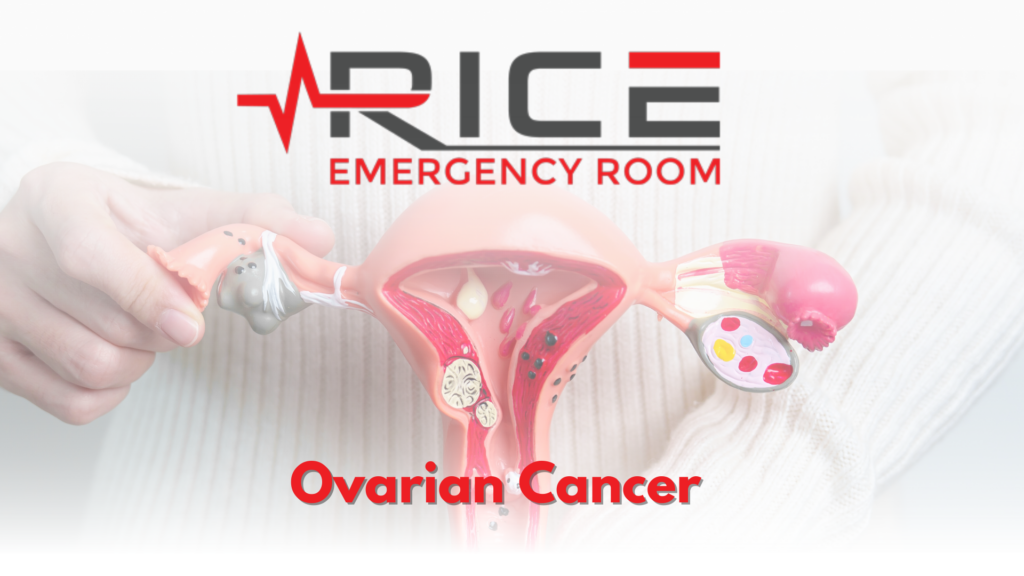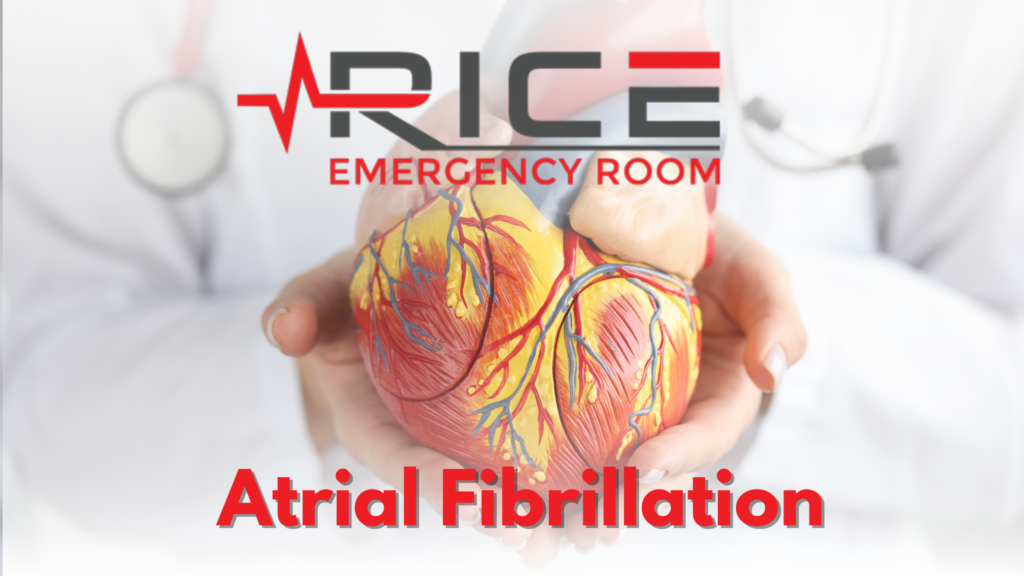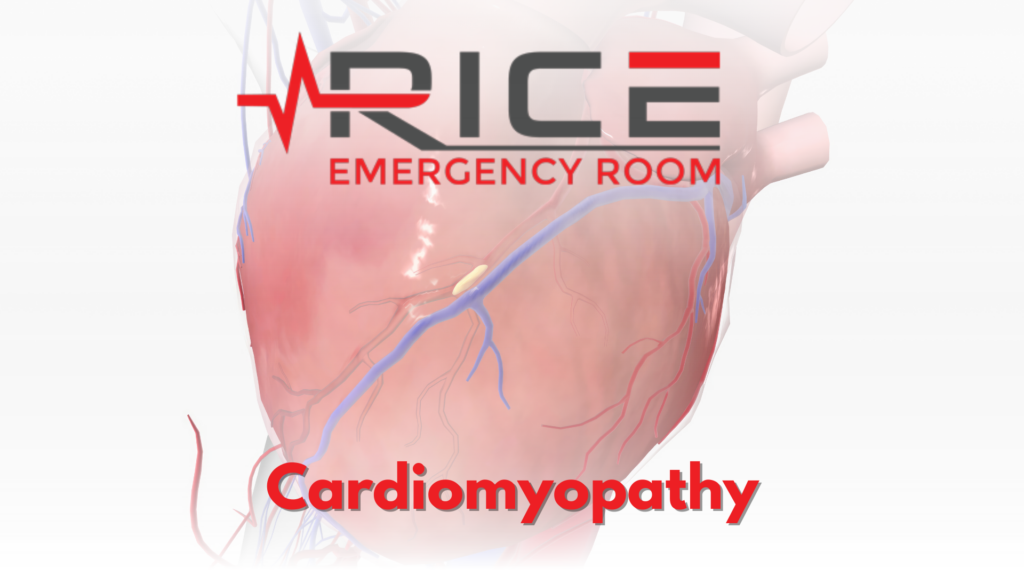Psychosis is a serious mental health condition characterized by a disconnection from reality. Individuals experiencing psychosis may have hallucinations, delusions, or severely disorganized thinking, making it challenging to distinguish between what is real and what is not. This condition can be alarming for both the person experiencing it and those around them, and it often requires immediate medical attention. Understanding the symptoms, causes, and available treatments for psychosis is crucial, especially when a psychosis emergency arises. Rice Emergency Room is equipped to handle such crises, offering rapid intervention and support to stabilize the patient and ensure their safety.
Symptoms of Psychosis
Psychosis can manifest in various ways, and the symptoms can differ significantly from person to person. However, common symptoms include:
- Hallucinations: Seeing, hearing, or feeling things that are not present. These hallucinations can be visual, auditory, or sensory in nature (American Psychiatric Association).
- Delusions: Strongly held false beliefs that are not based in reality. For example, a person might believe they are someone famous or that they are being persecuted without any evidence to support these beliefs (National Institute of Mental Health).
- Disorganized Thinking: Incoherent or illogical thought patterns that make it difficult for the person to communicate effectively or make decisions (American Psychiatric Association).
- Paranoia: Intense and irrational mistrust or suspicion of others (Mayo Clinic Staff).
- Agitation and Confusion: The individual may become extremely agitated, confused, or unable to focus on simple tasks (Mayo Clinic Staff).
The presence of these symptoms, especially if they develop suddenly, is a clear indicator that the person is experiencing a psychotic episode. Immediate medical intervention is necessary to prevent harm to the individual or others.
Causes of Psychosis
Psychosis can be triggered by various factors, often categorized into medical, psychological, and substance-related causes.
- Mental Health Disorders: Conditions such as schizophrenia, bipolar disorder, and severe depression can lead to psychosis. These disorders often have a genetic component, increasing the risk for individuals with a family history of mental illness (National Institute of Mental Health).
- Substance Abuse: The use of drugs such as amphetamines, LSD, or cannabis can induce psychosis, especially if used in large quantities or over extended periods. Withdrawal from certain substances can also precipitate psychotic episodes (Substance Abuse and Mental Health Services Administration).
- Medical Conditions: Some medical issues, such as brain tumors, neurological disorders, or severe infections like encephalitis, can cause psychosis. Additionally, hormonal imbalances, particularly those related to thyroid function, may lead to psychotic symptoms (Mayo Clinic Staff).
- Trauma or Stress: Extreme stress or traumatic events can trigger a psychotic episode, particularly in individuals predisposed to mental health issues (National Institute of Mental Health).
Understanding the underlying cause of psychosis is important in determining the appropriate treatment and managing the condition effectively.
Emergency Room Treatment for Psychosis
When someone experiences a psychotic episode, it is essential to seek immediate medical attention. Rice Emergency Room in Rice Village is prepared to handle psychosis emergencies with a multidisciplinary approach. Upon arrival, the individual will be assessed by a Board-Certified Emergency Physician..
The initial priority is to ensure the safety of the patient and those around them. This may involve calming techniques, de-escalation strategies, and, if necessary, the administration of sedatives to stabilize the patient. Following stabilization, a comprehensive evaluation is conducted to determine the underlying cause of the psychosis.
This may include:
- Medical Examination: To rule out any physical causes of psychosis, such as infections, drug intoxication, or neurological conditions (American Psychiatric Association).
- Psychiatric Assessment: A detailed evaluation of the patient’s mental health history, current symptoms, and possible triggers (National Institute of Mental Health).
- Laboratory Tests and Imaging: Blood tests, urine tests, or brain imaging (such as MRI or CT scans) may be used to identify any underlying medical issues (Mayo Clinic Staff).
Once the assessment is complete, our healthcare team will assist in connecting the patient with a mental health provider who will create an ongoing treatment plan tailored to the individual’s needs. We can also coordinate with the patient’s current mental health provider for additional care. In severe cases, hospitalization may be required to ensure the patient’s safety and to provide intensive treatment (Substance Abuse and Mental Health Services Administration).
Creating a Safe Space for Mental Health Emergencies
Psychosis is a medical emergency that requires prompt attention to prevent harm and provide relief from symptoms. Understanding the signs, causes, and available treatments is vital, and knowing that quick access to emergency care is available at Rice Emergency Room is vital. The facility is equipped to handle psychosis emergencies and offers a safe environment for assessment and treatment.
As September is National Suicide Prevention Awareness Month, it is essential to recognize that psychosis can significantly increase the risk of suicide. If you or someone you know is experiencing symptoms of psychosis, do not hesitate to seek immediate medical help. Early intervention can save lives and provide the necessary support for recovery.
Works Cited
- American Psychiatric Association. Diagnostic and Statistical Manual of Mental Disorders (DSM-5). American Psychiatric Publishing, 2013.
- Mayo Clinic Staff. “Psychosis: Symptoms, Causes, and Treatment.” Mayo Clinic, https://www.mayoclinic.org/diseases-conditions/psychosis/symptoms-causes/syc-20354443.
- National Institute of Mental Health. “Psychosis.” NIMH, https://www.nimh.nih.gov/health/topics/psychosis.
- Substance Abuse and Mental Health Services Administration. “Behavioral Health Treatments and Services.” SAMHSA, https://www.samhsa.gov/treatment.




